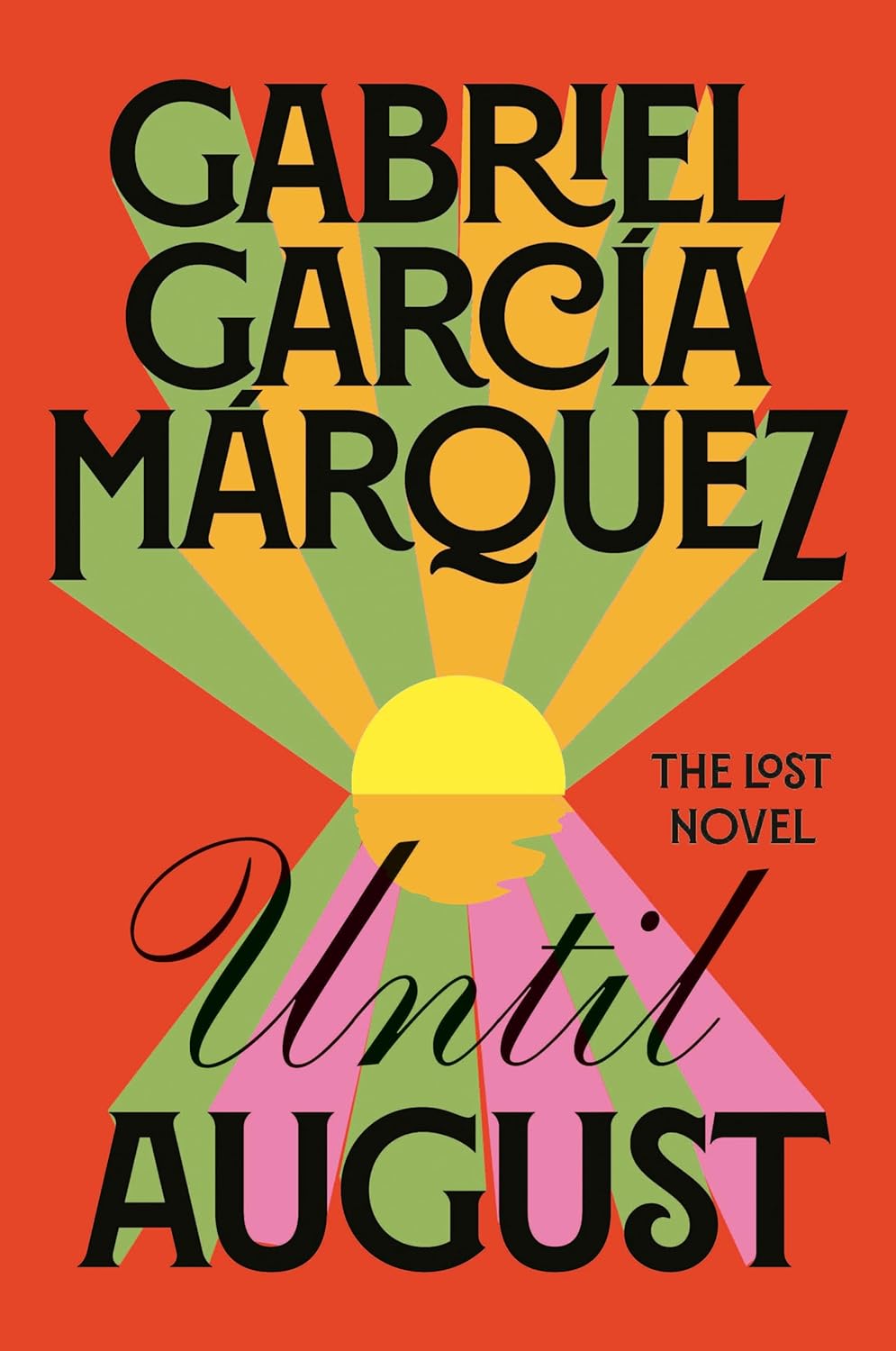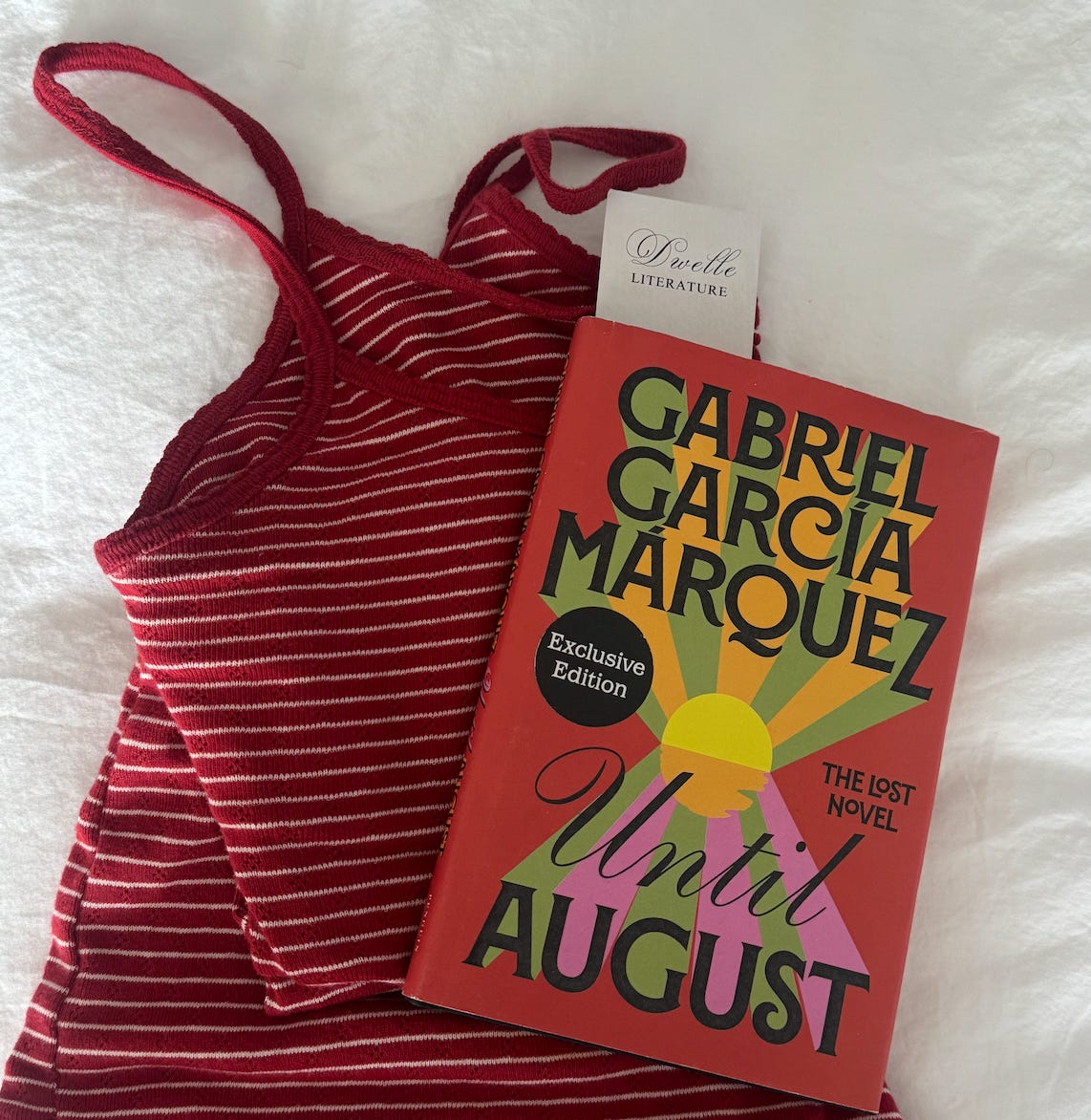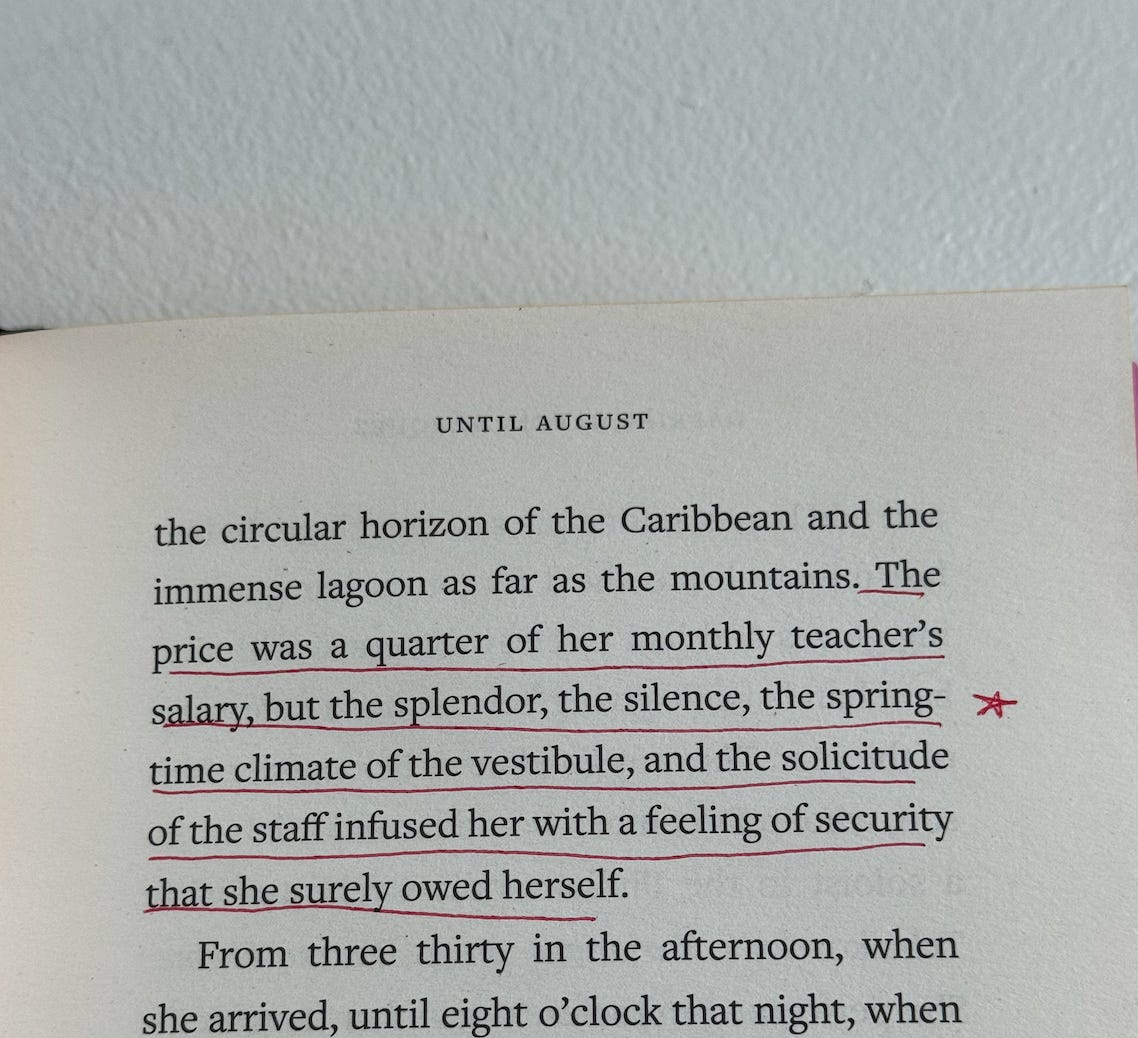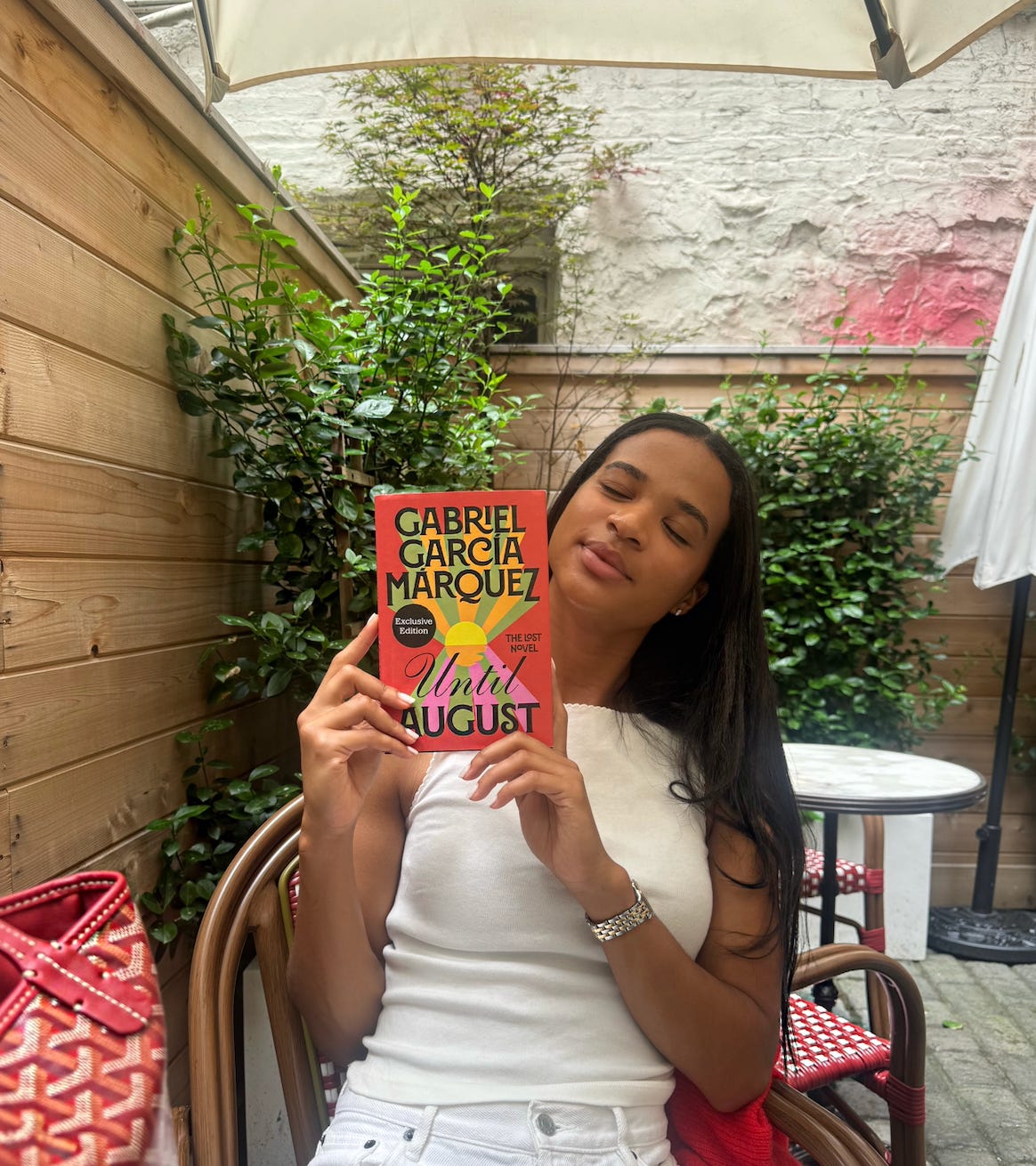Until August

“To live your life waiting for one day”—that is the story of Ana Magdalena Bach in Gabriel García Márquez's posthumously published novella Until August.
Ana’s mother’s dying wish was to be buried on an island unknown to Ana or any of her mother's friends. Ana imagines that by resting in a place entirely new, her mother’s spirit might gain new places to roam in the next life. That is, until she discovers that her mother’s burial choice is not random at all.
Every August 16th, Ana journeys to that island to place flowers on her mother’s grave. Over time, this pilgrimage becomes the essence of her life: repetition, ritual, and the old. Márquez deliberately emphasizes these elements: Ana stays at “the oldest, most dilapidated hotel,” chooses the oldest-looking taxi, and brings gladioli, flowers as vintage as her ritual.
Then, something overtakes her. Perhaps it is the spirit of her mother’s ghost, but on one trip, Ana takes an impulsive risk: a one-night stand with a stranger.

Ana has been happily married for twenty-seven years to a husband who loves her deeply; one of their favorite rituals is bathing each other with soft soap as they debrief their days. They have two children, and although one of them causes some distress in their lives, Ana is living a good life.
Ana has never strayed from the life she knows: never moved cities, changed careers, or slept with any man except her husband. So why, after visiting her mother’s grave, does she yearn for more?
"She straddled him, took him right up to her soul and devoured him for her own pleasure not even thinking of his, until they were both left perplexed and exhausted in a soup of sweat "(18)
At only 110 pages, this novella leaves little space for explicit “whys.” A first reading may satisfy on its surface, but a close reading reveals clues that suggest Ana’s desire for depth beyond routine.
Underneath descriptions of her ordinary life lie strands of grief, not only for her mother, but for the life that seems it will never change. In one section, Ana and her husband speak of “the threat of routine” in their sex life (32). To combat this threat, the two vow to try being intimate in new places, at new times, and in new positions. A few pages are spent describing this effort, which led me to wonder if the routine of Ana’s daily life, outside of sex, holds a similar danger.
What if the kind husband, beautiful children, and stable life aren’t enough? Or only enough for so long?

In a casual moment, Ana remarks to a stranger, “At my age … all women are alone” (106). But rather than seek new companionship or emotional intimacy, Ana gives herself one day a year to live a new life, one centered on fleeting desire.
Ana’s yearning to break free stems from an absence in her current life. Though she never states regret for having only one sexual partner, her one-night stands hint at it. In fact, in her very first one-night stand, she behaves in a way that contrasts with her nature. This soft-spoken woman “wanted to attack” her lover (with passion), emphasizing her desire to be someone she’s never been before. Is this independence? Freedom? A solution?
*spoilers ahead*
"She considered that her mother’s reason— her mother’s passion— might be the same as hers" (102)
My favorite moment in the novella comes at the end, when Ana learns that her mother, too, had a secret lover who visited her grave. It then seems possible to Ana that her mother, in choosing that island, invited Ana to seek her own renewal there. It’s a unique, considerate take on generational trauma.
I found this full-circle moment to be quite endearing, but why does it scare Ana? Why did she decide to end her trips to the island and even go so far as to remove her mother’s bones and wipe the traces of their family entirely?
Until August is an unfinished novella, so it’s possible that there were plans to include more scenes and obstacles before the end, or even this ending could’ve been scratched. But for now, we can only decipher what is present, and even in its unfinished form, the novella sketches a woman’s interior life. Ultimately, Ana’s journey is a reminder that even one impulse, one night, can open the possibility of seeing yourself and your life with new eyes.


